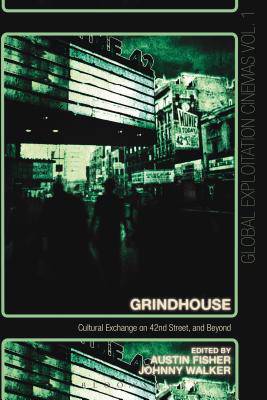
- Retrait gratuit dans votre magasin Club
- 7.000.000 titres dans notre catalogue
- Payer en toute sécurité
- Toujours un magasin près de chez vous
- Retrait gratuit dans votre magasin Club
- 7.000.0000 titres dans notre catalogue
- Payer en toute sécurité
- Toujours un magasin près de chez vous
Grindhouse
Cultural Exchange on 42nd Street, and Beyond
Description
The pervasive image of New York's 42nd Street as a hub of sensational thrills, vice and excess, is from where "grindhouse cinema," the focus of this volume, stemmed. It is, arguably, an image that has remained unchanged in the mind's eye of many exploitation film fans and academics alike. Whether in the pages of fanzines or scholarly works, it is often recounted how, should one have walked down this street between the 1960s and the 1980s, one would have undergone a kaleidoscopic encounter with an array of disparate "exploitation" films from all over the world that were being offered cheaply to urbanites by a swathe of vibrant movie theatres.
The contributors to Grindhouse: Cultural Exchange on 42nd Street, and Beyond consider "grindhouse cinema" from a variety of cultural and methodological positions. Some seek to deconstruct the etymology of "grindhouse" itself, add flesh to the bones of its cadaverous history, or examine the term's contemporary relevance in the context of both media production and consumerism. Others offer new inroads into hitherto unexamined examples of exploitation film history, presenting snapshots of cultural moments that many of us thought we already knew.Spécifications
Parties prenantes
- Editeur:
Contenu
- Nombre de pages :
- 280
- Langue:
- Anglais
- Collection :
Caractéristiques
- EAN:
- 9781628927498
- Date de parution :
- 22-09-16
- Format:
- Livre broché
- Format numérique:
- Trade paperback (VS)
- Dimensions :
- 152 mm x 226 mm
- Poids :
- 408 g

Les avis
Nous publions uniquement les avis qui respectent les conditions requises. Consultez nos conditions pour les avis.





